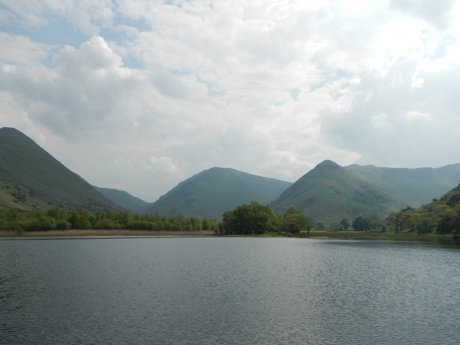Liverpool Geographers win award to investigate impacts of agricultural change on soil erosion

Researchers will examine impacts from changing agricultural land practices on soil erosion and sedimentation in Britain over the last 100 years to support modelling of future impacts
Research at the University of Liverpool will investigate the impact of past and future changes in agricultural land practices on catchment soil erosion and lake sedimentation at locations across Britain.
The new research, funded by the Leverhulme Trust, aims to model the impact of past changes in agricultural practices on erosion and sediment movement. By modelling the effects of recent past changes, the team is seeking to project impacts under future agricultural and climate scenarios.
Dr Hugh Smith, the lead researcher, said “Presently, there are important gaps in our knowledge of the potential magnitude of changes in soil erosion and sedimentation that could be achieved through various types of land management and restoration activities under a changing climate.”
The project adopts a novel approach that combines environmental and social records of agricultural change in the last 100 years with multiple-model simulations of catchment erosion. Changes to agricultural land practices, particularly since the 1940s, included increases in arable farming, machinery use, field sizes and stocking densities. Past impacts can be assessed independently of the models using measured rates of sediment accumulation in lakes. These lakes trap sediment eroded from the surrounding catchment area, the age of which can be determined by techniques such as radioisotope dating.
The research will support the development of management strategies to reduce the impact of soil erosion in agricultural landscapes. Excessive soil erosion and sediment input to rivers and lakes can adversely affect aquatic environments, infrastructure and water supplies.
The research team comprises physical and social scientists from the Department of Geography and Planning in the School of Environmental Sciences. The two year interdisciplinary project is worth £217,766 and includes co-investigators Dr Mark Riley, Professor Richard Chiverrell and Dr John Boyle.